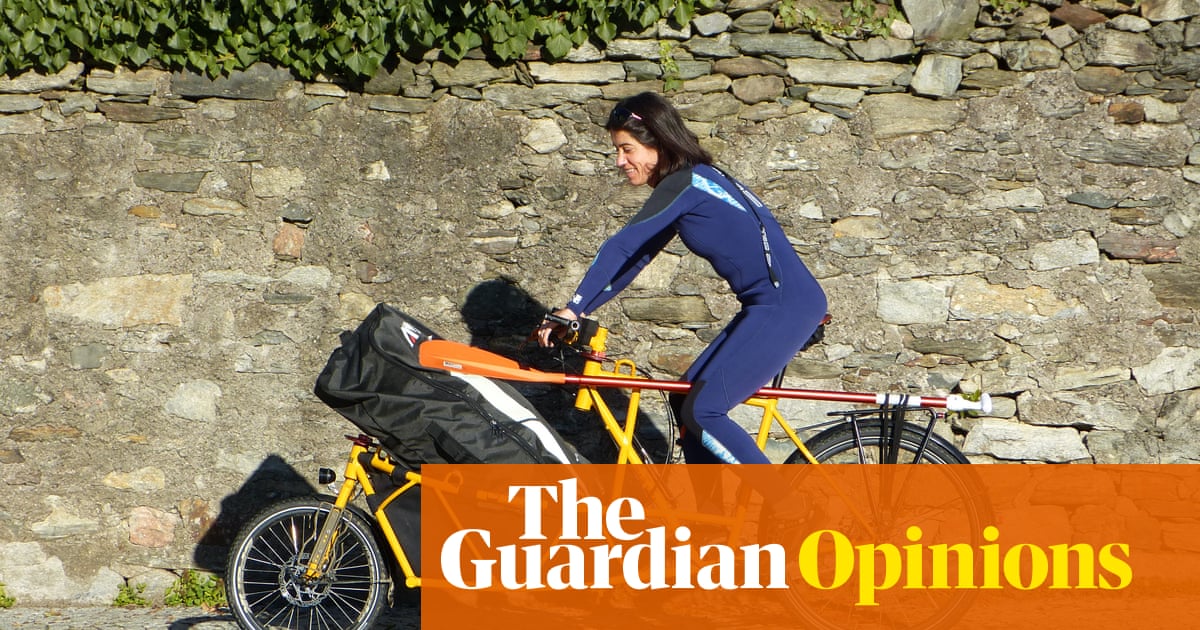Living car-free in a big city is fairly common these days. Yes, it can mean some adaptation, but when so many things are on your doorstep it’s not such a big challenge. So how about car-free life in a remote Italian mountain village, with barely any public transport?
We have been living in rural Italy without a car for more than five years now. Even though we have always loved bicycles, the decision to sell our car wasn’t a particularly considered one.
It all started with our fear for climate change and environmental issues, which prompted us to drawa massive bicycle across the map of Europea few years ago in an attempt to try and persuade people to use their cars a bit less.
We succeeded in at least one regard, because we persuaded ourselves we could live without a car completely.
Previously, we owned a VW Golf that was quite nice and super-reliable. As with most people, we depended on it for all sorts of essential and non-essential trips: shopping, doctors’ appointments, trips to the garden centre or dump, walks in the mountains – pretty much everything.
We had lived as a couple without a car before, but we were younger, we didn’t have a dog, and we lived in big cities. Now, we live in a small Italian village in the foothills of the Alps, where public transport is close to non-existent and what there is is highly unreliable.
Most of our extended family were against the idea, and perhaps with some justification.Cyclingin rural Italy is not particularly easy, as there is very little cycling infrastructure and drivers do not give cyclists enough space on the road. We weren’t (and still aren’t) particularly dedicated cyclists.
Even if it is fair to say that we sold the car without thinking through the consequences too much, there were early signs that this wasn’t the most stupid thing we had done.
The sense of freedom and happiness in those first few trips was empowering. We felt we had managed to stop letting society dictate what we had to have and what we didn’t, at least regarding our transport choices.
And over time, we have found that there is a car-free solution to almost every logistical problem, with just a little bit of planning – and a few bikes. For the grocery shopping, we use an electric cargo bike – hauling 50kg of food uphill without a motor would be enough to make extreme dieting seem attractive.
To take the dog for a walk, we use a non-electric cargo bike. You get to the paths pretty fast, and then the dog can walk while you cycle. For trips to Milan, Turin or Novara, a combination of train, bus and folding bike works well.
We’ve taken pretty much everything on our cargo bikes, from small olive trees and manure for our vegetable patch to kayaks and building supplies. Trips to the mountains are still tricky, though.
Quite often it takes longer to go by bike, but time can be saved with a bit of organisation. Going to the gym by bike means you don’t need to warm up once you arrive. Commuting and exercising at the same time is certainly a time saver.
If the dog can come where you are going and you’re not too tight for time, you can take a path and walk the dog on the way. Shopping takes longer, but parking is never a problem.
Sign up toDown to Earth
The planet's most important stories. Get all the week's environment news - the good, the bad and the essential
after newsletter promotion
Predictably, we are now fitter than we were and have saved money, but there have been other benefits we would never have anticipated.
Cycling everywhere has improved our social life, as speeds of up to 15mph are sociable. People can say hello as you pass and we feel more like we are part of a community.
There is also nothing like a good bike ride to help you clear your thoughts and feel better psychologically.
Simple trips, even the most boring of errands, have become a bit more adventurous and fun. And we get to park near to the entrance of wherever we’re going, quietly content – some would say smug – that we didn’t come by car.
We’re not planning to get another car just yet. But if anyone is heading to the mountains, we’d love a lift.
